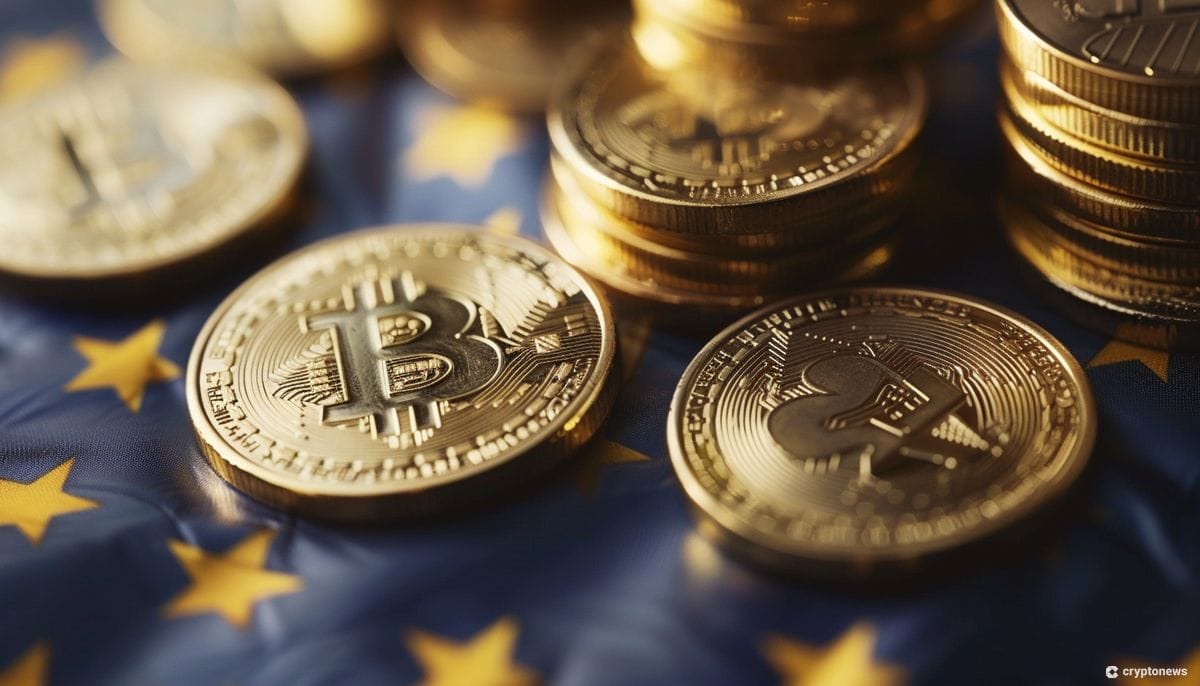Binance to Restrict Unregulated Stablecoins in EU Ahead of MiCA Regulation Implementation

Binance, the world’s largest cryptocurrency exchange by trading volume, is set to restrict the availability of certain stablecoins in the European Union (EU) to comply with the upcoming Markets in Crypto-Assets Regulation (MiCA).
This move is in response to the upcoming Markets in Crypto-Assets Regulation (MiCA), which aims to bring stablecoins under a new regulatory framework in the EU starting at the end of June.
Binance is Going Into Full Compliance with the Upcoming MiCA
Binance announced it will soon restrict access to stablecoins deemed “unregulated” by the European Union. This change aligns with the imminent implementation of the Markets in Crypto-Assets Regulation (MiCA), which will enforce a new regulatory framework for stablecoins within the EU.
The MiCA regulation, set to take effect at the end of June, is expected to significantly impact the stablecoin market in the European Economic Area (EEA).
Binance stated that under these new MiCA rules, only stablecoins issued by regulated companies would be available to the public. Consequently, several existing stablecoins might not meet the criteria and will face certain restrictions.
“This will be a first step in entering the new regulatory framework and it will have a significant impact on the stablecoin market in the European Economic Area,” an official statement said.
Although Binance did not specify which stablecoins would be affected, the exchange outlined a phased approach to comply with the new regulations.
Users holding “unauthorized” stablecoins can convert them into digital assets such as Bitcoin, Ether, regulated stablecoins, or fiat currency.
Starting June 30, purchasing these “unauthorized” stablecoins will no longer be possible in Europe.
This move is part of a broader effort by Binance to enhance its regulatory compliance. Since former CEO Changpeng Zhao was sentenced to four months in prison in April, the company’s new leader, Richard Teng, has been improving Binance’s relationship with regulators.
The New EU Regulation
The EU recently passed the new anti-money laundering regulation (AMLR) affecting all crypto-asset service providers (CASPs). This regulation enhances the powers of Financial Intelligence Units (FIUs) to detect and combat money laundering and terrorist financing.
The new laws, announced on April 24, will impact crypto exchanges and brokers regulated under MiCA. They must implement enhanced due diligence measures and report suspicious activities to FIUs.
Customer due diligence will also be necessary for transactions above €1,000, even for casual use of CASPs for buying goods and services.
Notably, the European Securities and Markets Authority (ESMA) is also seeking input from stakeholders about including crypto assets in investment products. This could open a vast market for cryptocurrencies beyond the scope of spot Bitcoin exchange-traded funds (ETFs).
This initiative aims to expand assets eligible for Undertakings for Collective Investment in Transferable Securities (UCITS), a market valued at €12 trillion.
The European Union’s securities regulator, the European Securities and Markets Authority (ESMA), has also recently expressed concerns about the high concentration of trading activity on a limited number of crypto exchanges.
Notably, Binance controls roughly half of the entire market, with just 10 exchanges handling about 90% of all cryptocurrency trades. This concentration poses risks, as a failure or malfunction at a major exchange could significantly impact the broader crypto ecosystem.
Additionally, the ESMA highlighted the current strong dependence on USD and the South Korean won in the crypto market, with the Euro playing a minor role, accounting for only about 10% of transactions. The MiCA regulation is expected to increase the use of the Euro by strengthening investor protection.
Notably, Binance France has recently replaced its co-founder Changpeng Zhao with two new shareholders, Yulong Yan and Lihua He, each holding 50% of the shares to comply with French regulations and maintain its operational status in the EU.
This move follows Zhao’s legal issues, including a guilty plea for violating US banking laws. It is part of Binance’s broader effort to align with the European Union’s new regulatory frameworks, like the Markets in Crypto-Assets (MiCA) regulation.








